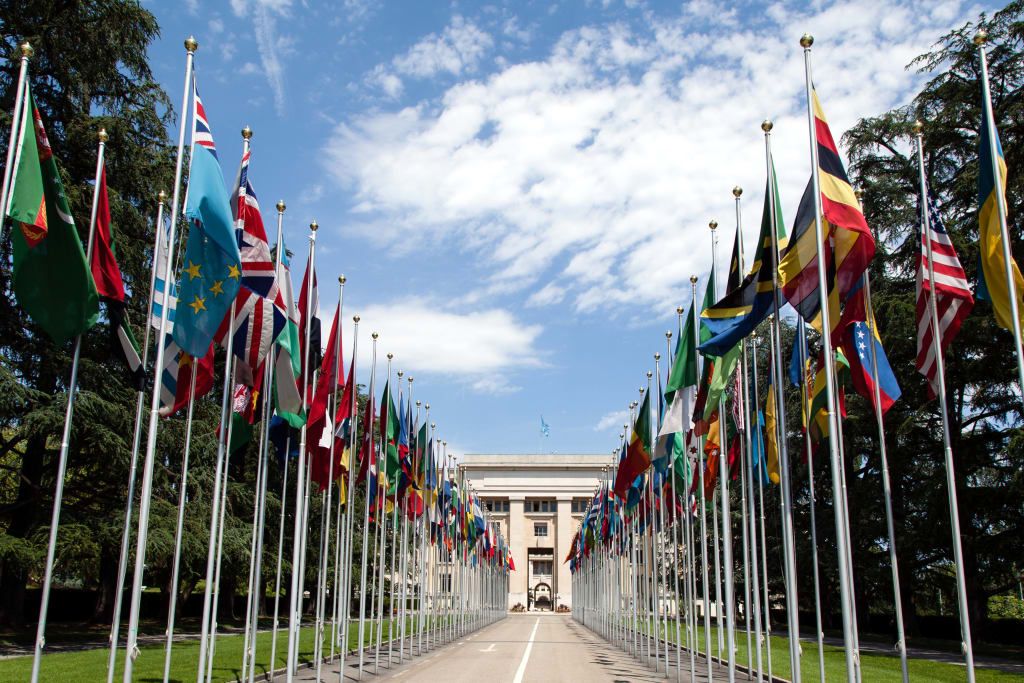Do We Need The UN?
A review of Samantha Power's memoir "Education of an Idealist"

The United Nations is an organization that we’ve all heard of, and one which people seem to have very strong opinions about. But what’s less known is how the Institution actually operates and functions.
So, I wanted to put together a mini explainer that covers the basics. The UN is an intergovernmental organization - basically like a club whose members are states. Now, the purpose of this club is to get together, make friends with one another, find ways to work together and make big, big decisions on issues that affect the whole world.
The UN was founded at the end of WWII when 50 countries met in San Francisco to draft the UN Charter. By signing this Charter, members agreed to uphold certain principles, follow certain rules, perhaps most significantly, the commitment to uphold human rights of citizens.
Now, in order to do this, it’s important to understand a little about how the system works, so forgive me for being a bit technical here. But, here goes. We are just going to focus on the General Assembly and the Security Council.
The General Assembly is where all of the member states come to deliberate and make decisions. Each country has an Ambassador who is their representative at the UN, and an “important question”, called a Resolution, will be brought up and all the member states vote on it. Every single state has one vote and if a resolution get’s ⅔ majority, the resolution is passed. These resolutions cover a broad range of issue, anything from “Should we put sanctions on Iran if they don’t stop their nuclear program?” (Yees) or “Should we establish that LGBT rights are Human Rights?” (Yes) “Should we call for a 7 days ceasefire in Syria to go in and rescue civilians” (N0). Wait… what?
See, this is where things get tricky- There’s also the Security Council. The Security Council is in charge of ensuring international peace and security, accepting new members and any changes to the charter. It’s comprised of 15 members -10 of them are temporary members elected by region to serve for 2 years. But 5 of them are permanent, these permanent members, the Big Five, are the US, UK, France, Russia and China - the 5 victors of WWII. And these 5 have the power to veto, or reject, any resolution. Just one veto from the Big 5 and that’s it- game over.
The UN often faces harsh criticism in how it responds, or doesn’t, to international crises. People often say that the UN is useless or ineffective. But when pointing the finger at the UN, it’s important to understand what the UN actually is…. A building. Yes, that’s it. The UN is not a single entity that can make decisions and take action on it’s own. No, it’s just a building where countries gather. The UN is only as strong and capable as those countries inside it make it. When countries work together, they can make real, effective change, save lives, prevent genocide, but it only takes one veto to put the breaks on any collective action. This is the point that Samantha Power, the American ambassador to the UN under Obama, makes in her brilliant book Education of An Idealist. This is the book that actually inspired me to do this episode and where I got most of my information from.
Something else that stood out to me reading her book was when she writes that, “Sometimes preventing a bad outcome is what passes for victory” (426). See, we always know when things go wrong, because we can see the tragedy unfold on our tv screen or we can feel the impact on our communities. But it’s actually hard to gauge when things go right, or when a major crisis is prevented because, well, it never happened. Because the benefits of the UN are hard to quantify, unless of course you are one of the billions of people around the world who have gotten their education, their medicine, their water, their food, from the UN, but nonetheless, hard to quantify, it’s very easy for people to say that we don’t need it. But that would be kind of like saying “Oh, I’m healthy now, I can stop working out." Well, no. You’re healthy because you were working out.”
Now the UN is far from perfect, but it’s important to identify both where it’s benefit’s lie and where it’s weaknesses are so we can constantly be working to improve it. For what it’s worth, Personally, I believe in diplomacy and I would prefer to live in a world where people settle their arguments in a conference room rather than on the battlefield.
This video is part of my WTF Is Happening Series.
About the Creator
Nathalia Ramos
Spanish/Australian living in LA.
Actor. Writer. Political Scientist.
IG: @NathaliaRamos Twit: @nathalia73






Comments
There are no comments for this story
Be the first to respond and start the conversation.